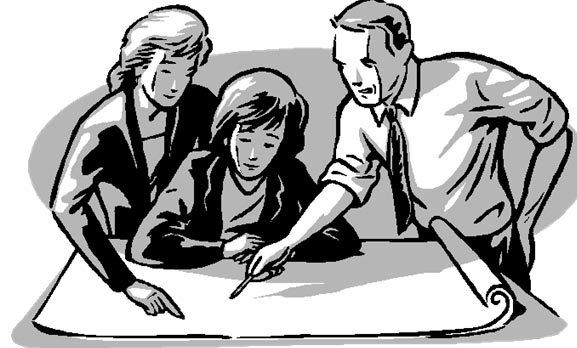Dust and Dirt Removal
- Vacuum cleaners are suitable for removing light dust and dirt.
- Industrial models have special fittings for cleaning walls, ceilings, ledges, machinery, and other hard-to-reach places where dust and dirt may accumulate.
- Special-purpose vacuums are useful for removing hazardous substances. For example, vacuum cleaners fitted with HEPA (high efficiency particulate air) filters may be used to capture fine particles of asbestos or fibreglass.
- Dampening (wetting) floors or using sweeping compounds before sweeping reduces the amount of airborne dust. - The dust and grime that collect in places like shelves, piping, conduits, light fixtures, reflectors, windows, cupboards and lockers may require manual cleaning.
- Compressed air should not be used for removing dust, dirt or chips from equipment or work surfaces.
Employee Facilities
- Lockers are necessary for storing employees' personal belongings.
- Washroom facilities require cleaning once or more each shift.
- Have a good supply of soap, towels plus disinfectants, if needed.
- Provide special precautions such as showers, washing facilities and change rooms.
- Some may require two locker rooms with showers between to allow workers to shower off workplace contaminants and prevents them from contaminating their "street clothes" by keeping their work clothes separated from the clothing that they wear home.
- Smoking, eating or drinking in the work area should be prohibited where toxic materials are handled.
- The eating area should be separate from the work area and should be cleaned properly each shift.
Surfaces
- Poor floor conditions are a leading cause of accidents so cleaning up spilled oil and other liquids at once is important.
- Allowing chips, shavings and dust to accumulate can also cause accidents.
- Trapping chips, shavings and dust before they reach the floor or cleaning them up regularly can prevent their accumulation.
- Areas that cannot be cleaned continuously, such as entrance ways, should have anti-slip flooring.
- Keeping floors in good order also means replacing any worn, ripped, or damaged flooring that poses a tripping hazard.
Walls:
- Light-colored walls reflect light while dirty or dark-colored walls absorb light.
- Contrasting colors warn of physical hazards and mark obstructions such as pillars.
- Paint can highlight railings, guards and other safety equipment, but should never be used as a substitute for guarding.
Waste Disposal
- It also makes it possible to separate materials that can be recycled from those going to waste disposal facilities.
- Allowing material to build up on the floor wastes time and energy since additional time is required for cleaning it up.
- Placing scrap containers near where the waste is produced encourages orderly waste disposal and makes collection easier.
- All waste receptacles should be clearly labelled (e.g., recyclable glass, plastic, scrap metal, etc.).
Storage
- Good organization of stored materials is essential for overcoming material storage problems whether on a temporary or permanent basis.
- There will also be fewer strain injuries if the amount of handling is reduced, especially if less manual materials handling is required.
- The location of the stockpiles should not interfere with work but they should still be readily available when required.
- Stored materials should allow at least one metre (or about three feet) of clear space under sprinkler heads.
- Stacking cartons and drums on a firm foundation and cross tying them, where necessary, reduces the chance of their movement.
- Stored materials should not obstruct aisles, stairs, exits, fire equipment, emergency eyewash fountains, emergency showers, or first aid stations. All storage areas should be clearly marked.
- Flammable, combustible, toxic and other hazardous materials should be stored in approved containers in designated areas that are appropriate for the different hazards that they pose.
- Storage of materials should meet all requirements specified in the fire codes and the regulations of environmental and occupational health and safety agencies in your jurisdiction.















